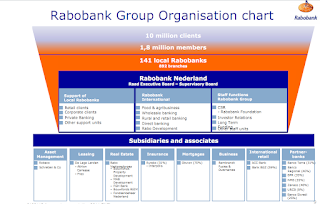Human Action, Ludwig von Mises (1)
Een aantal maanden geleden ben ik begonnen aan Human Action. Eerst dacht ik het boek sequentieel te gaan lezen, toen heb ik de audio's gedownload van de mises.org site, maar met beiden schoot ik toch weinig op. Totdat er een soort kantelpunt ontstond in relatie met het boek. En omdat ik ook een ander boek over Mises begon te lezen: The Ultimate Foundation of Economic Science.
Human Action is purposeful action, is misschien wel een van de belangrijkste stellingen in het boek. De veel besproken teleologische visie van Mises in tegenstelling tot de meer causale relaties die aan andere theorieën ten grondslag ligt.
Dit onderdeel gaat over empathie.
Over Empathy en twee vormen van begrip ():
Empathy (Einfiihlung) and understanding are two radically different attitudes. It is a different thing, on the one hand, to understand a work of art historically, to determine its place, its meaning, and its importance in the flux of events, and, on the other hand, to appreciate it emotionally as a work of art. One can look at a cathedral with the eyes of a historian. But one can look at the same cathedral either as an enthusiastic admirer or as an unaffected and indifferent sightseer. The same individuals are capable of both modes of reaction, of the aesthetic appreciation and of the scientific grasp of understanding. (Epistemological Problems of Human Action )
...
It is the same with aesthetic values. All races and nations have had both classic and romantic art. With all their ardent propaganda the Marxians have not succeedcd in bringing about a specifically proletarian art or literature. The "proletarian" writers, painters, and musicians have not created new styles and have not established new aesthetic values. What characterizes them is solely their tendency to call everything they detest "bourgeois" and everything they like "proletarian." (Econonzics and the Revolt Against Reason, 5. Polylogism and Understanding).
ACTION sorts and grades; originally it knows only ordinal numbers, A not cardinal numbers. But the external world to which acting man must adjust his conduct is a world of quantitative determinateness. In this world there exist quantitative relations between cause and effect. If it were otherwise, if definite things could render unlimited services, such things would never be scarce and could not be dealt with as means. ... The satisfaction derived from food and that derived from the enjoyment of a work of art are, in acting man's judgment, a more urgent or a less urgent need; valuation and action place them in one scale of what is more intensively desired and what is less. For acting man there exists primarily nothing but various degrees of relevance and urgency with regard to his own well-being (VII. ACTION WITHIN THE WORLD I. The Law of Marginal Utility).
...
Deel 2.
Praxeology and Liberalism Liberalism is a political doctrine. It is not a theory, but an appIication of the theories developed by praxeology and especially by economics to definite problems of human action within society. (Part Two. Action Within the Framework of Society. VIII. HUMAN SOCIETY )
...
Might is the faculty or power of directing actions. As a rule one says only of a man or of groups of men that they are mighty. Then the definition of might is: might is the power to direct other people's actions. He who is mighty, owes his might to an ideology. Only ideologies can convey The Role of ldeas to a man the power to influence other people's choices and conduct. One can become a leader only if one is supported by an ideology which makes other ~eople tractable and accommodating. Might is thus not a physical and tangible thing, but a moral and spiritual phenomenon. A king's might rests upon the recognition of the monarchical ideology on the part of his subjects. (IX - The Role of ideas)
---
Over "Onzekerheid" heb ik inmiddels ook gelezen. Daarin staat twee visies op waarschijnlijkheid centraal: Class probability en Case probability.



Reacties